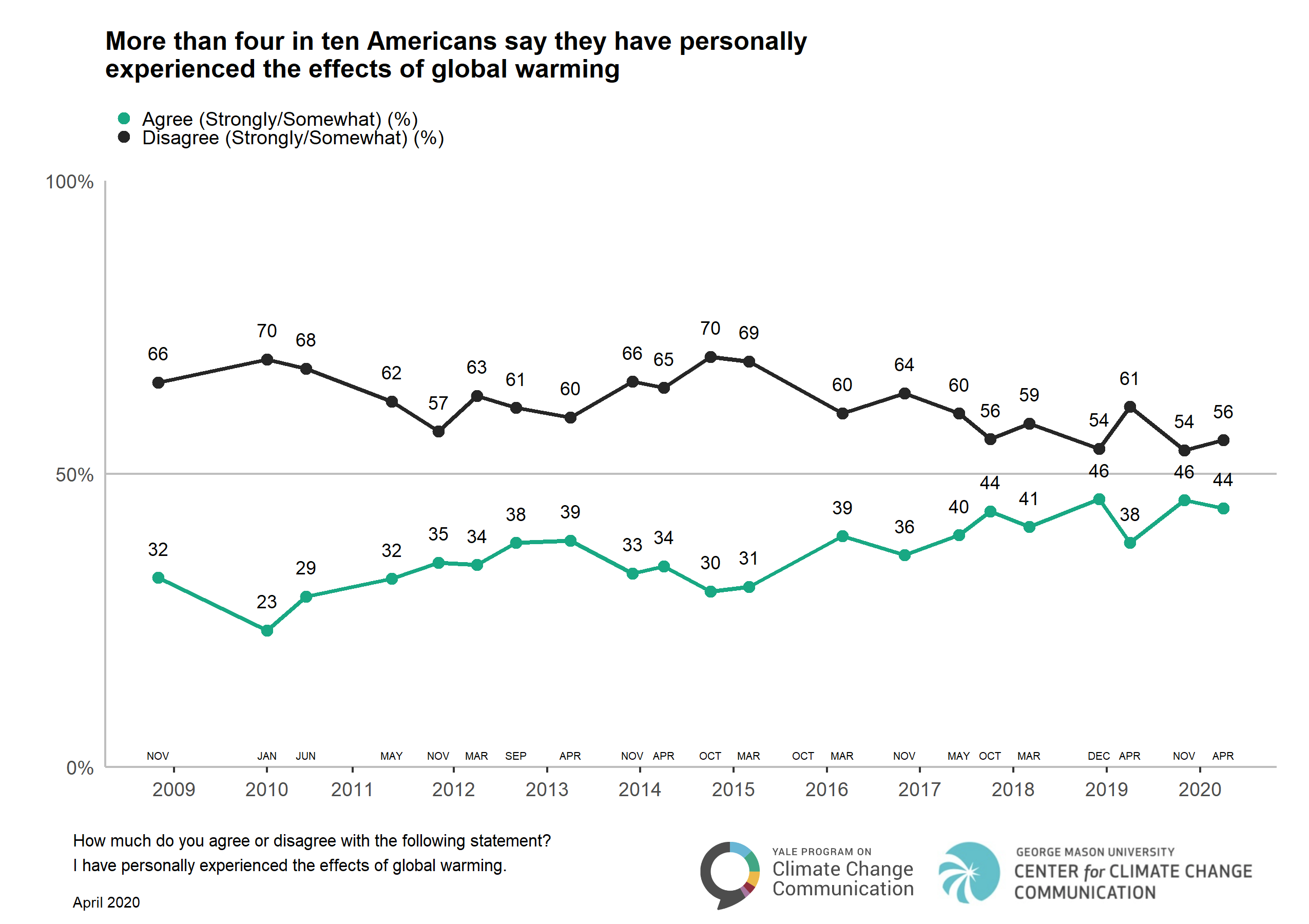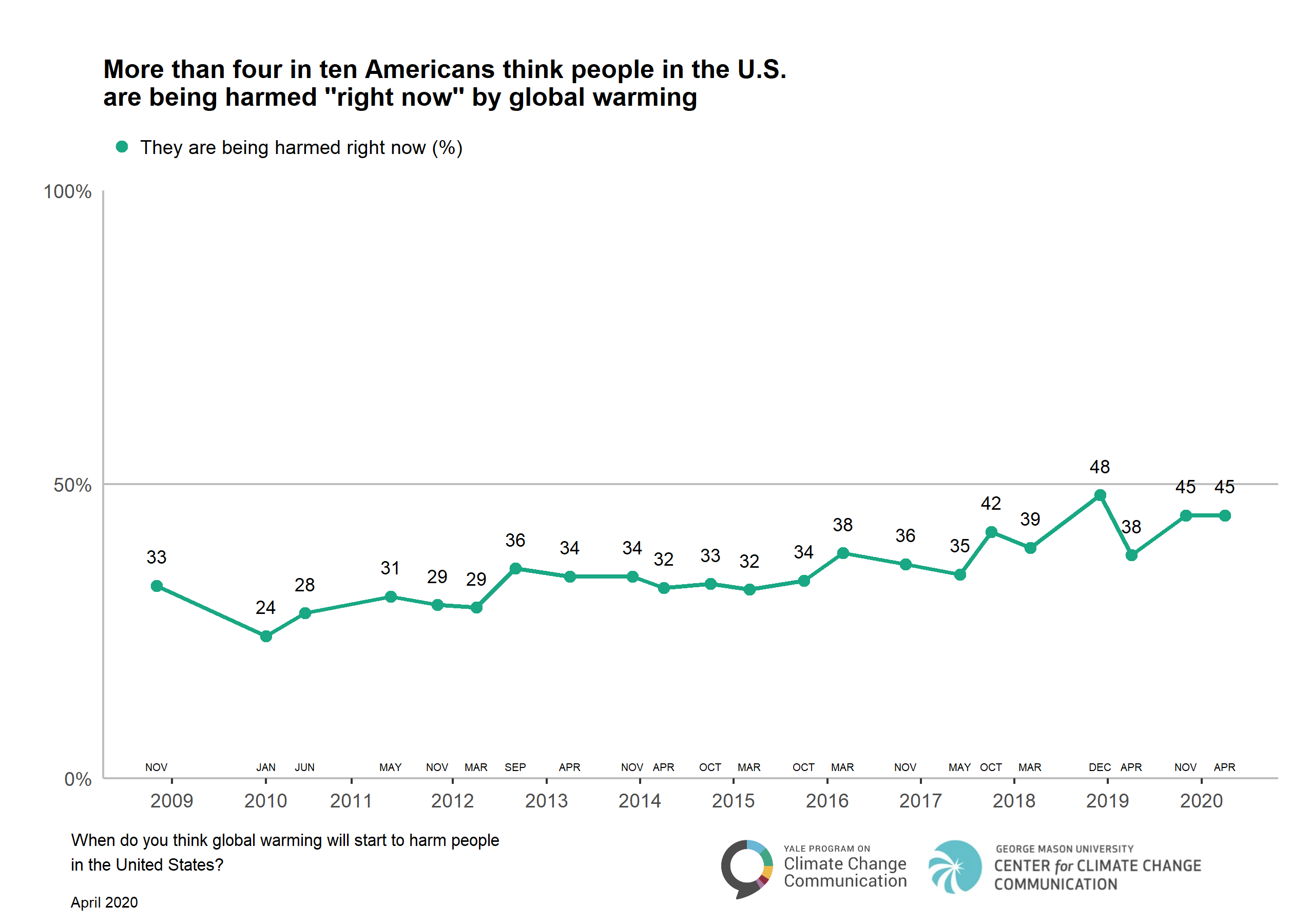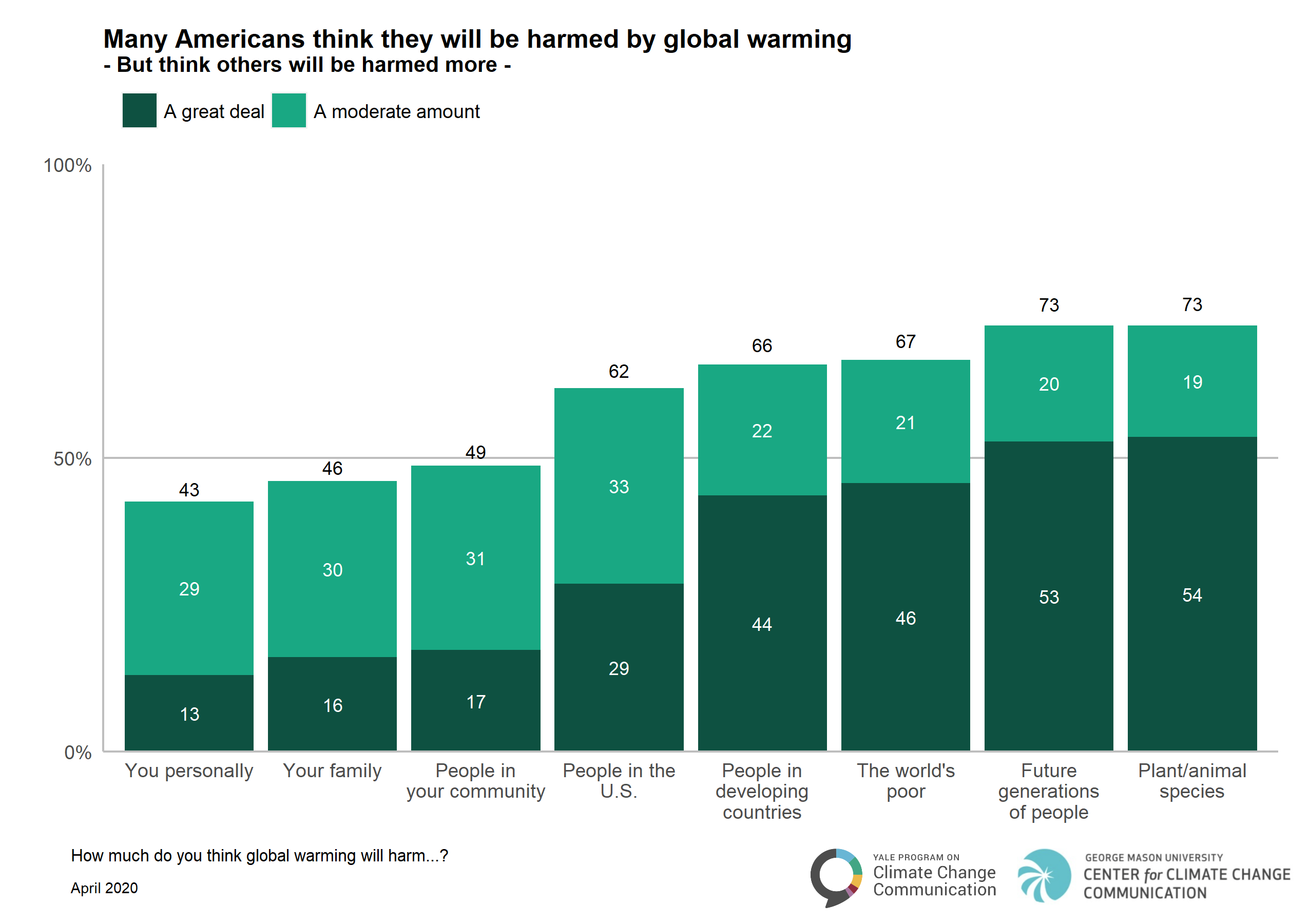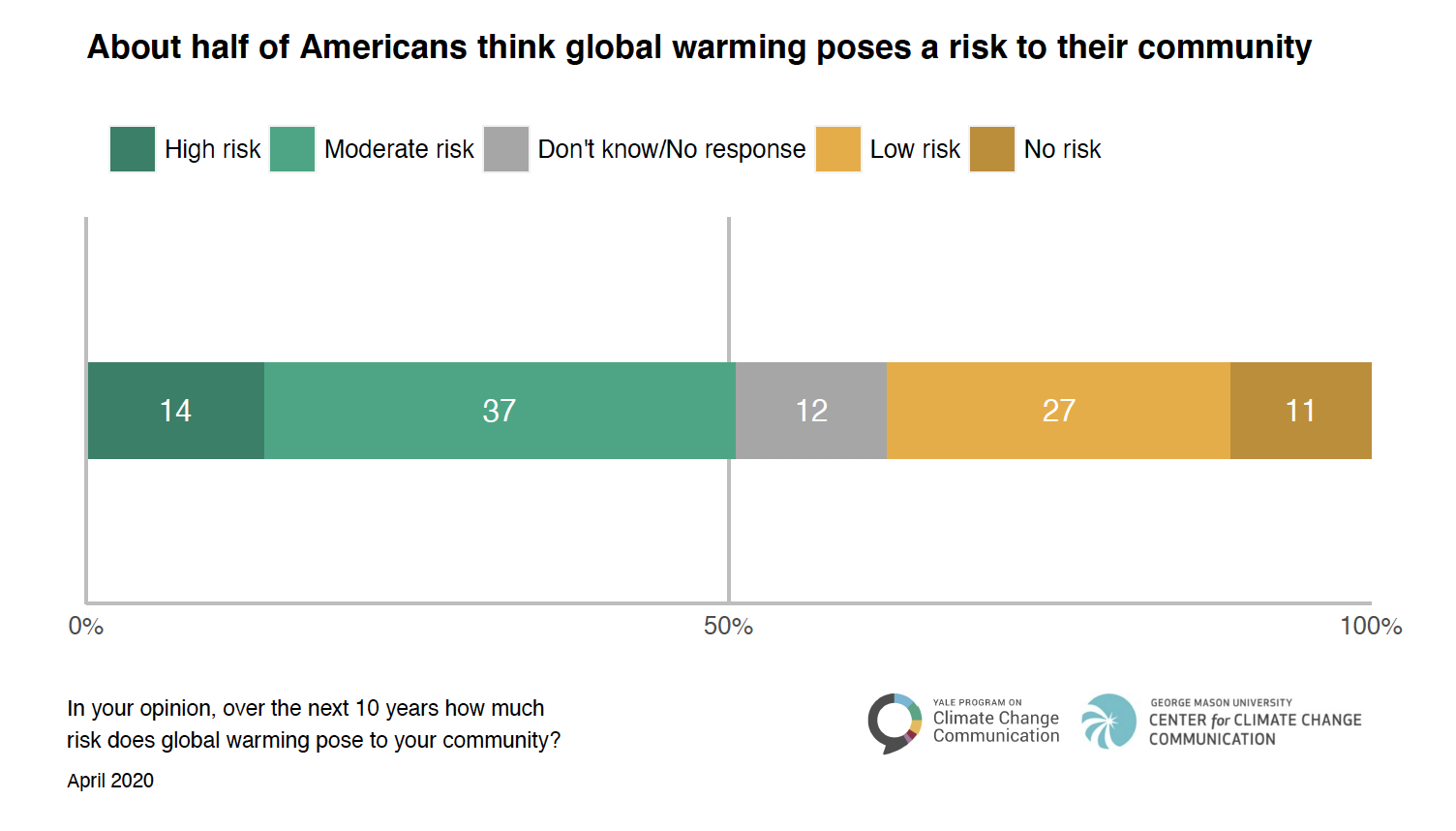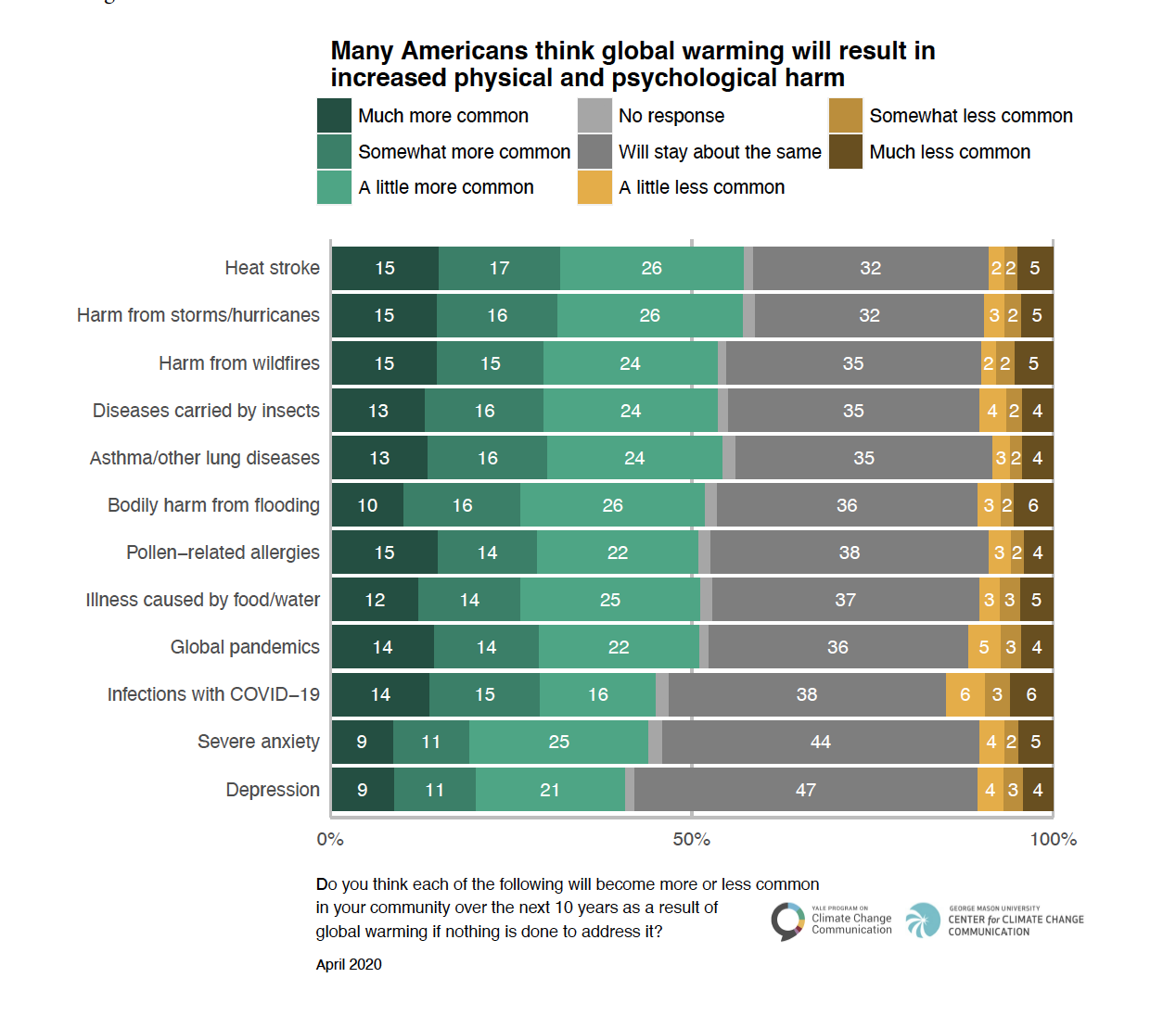Report · May 19, 2020
Climate Change in the American Mind: April 2020
By Anthony Leiserowitz, Edward Maibach, Seth Rosenthal, John Kotcher, Parrish Bergquist, Matthew Ballew, Matthew Goldberg, Abel Gustafson and Xinran Wang
Filed under: Beliefs & Attitudes
4. Perceived Risks of Global Warming
4.1. More than four in ten Americans say they have personally experienced the effects of global warming.
More than four in ten Americans (44%) say they have personally experienced the effects of global warming, while more than half (56%) say they have not.
The percentage of Americans who say they have personally experienced the effects of global warming has increased by 13 percentage points over the past five years (since March 2015).
4.2. More than four in ten Americans think people in the U.S. are being harmed “right now” by global warming.
More than four in ten Americans (45%) think people in the U.S. are being harmed by global warming “right now,” an increase of 13 percentage points over the last five years (since March 2015).
4.3. Many Americans think they will be harmed by global warming, but think others will be harmed more.
Many Americans understand that global warming will cause harm. Americans are most likely to think that plant and animal species (73%) and future generations of people (73%) will be harmed “a great deal” or “a moderate amount” by global warming. Six in ten or more think the world’s poor (67%), people in developing countries (66%), and people in the U.S. (62%) will be harmed. Four in ten or more think people in their community (49%), their family (46%), and they themselves (43%) will be harmed.
4.4. About half of Americans think global warming poses a risk to their community.
About half of Americans think global warming poses either a “high” (14%) or “moderate” risk (37%) to their community over the next 10 years.
4.5. Many Americans think global warming will result in increased physical and psychological harm.
Many Americans think physical and psychological harms will become at least “a little” more common as a result of global warming over the next 10 years, if nothing is done to address it. Half or more think the following will become more common: heat stroke caused by extreme heat waves (57%); bodily harm from severe storms and/or hurricanes (57%); bodily harm from wildfires (including smoke inhalation) (54%); diseases carried by insects, such as Lyme disease, West Nile virus, and/or dengue fever (54%); asthma and/or other lung diseases (54%); bodily harm from flooding (52%); pollen-related allergies (51%); illness caused by food and/or water containing harmful bacteria or viruses (51%); and global pandemics (51%).
Four in ten or more think infections with the novel coronavirus (COVID-19) (45%), severe anxiety (44%), and depression (41%) will become more common as a result of global warming.
